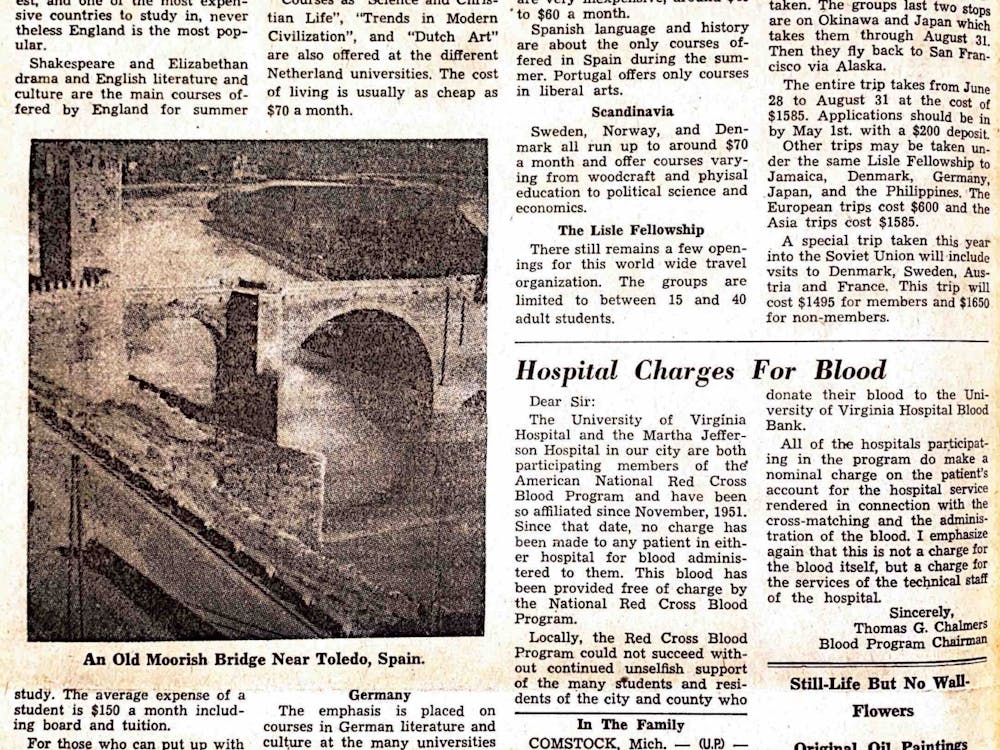The University’s Climate Action Society hosted the #CoalAsh17 Teach-In Tuesday night to teach students about the movement against coal ash pollution. The event was also hosted by Divest U.Va. and the Virginia Student Environmental Coalition.
CAS member Ian Ware, a first-year College student, said the groups thought the issue may be one the University community would be outraged about if informed.
“We wanted to give people a personal education of it from people who have experienced things to do with coal ash,” Ware said.
In 2014, the Environmental Protection Agency ruled that coal ash — the remnants from burning coal — could no longer be stored in coal ash ponds, which are traditionally used by fossil fuel companies to store the byproduct from burning coal.
The material is put into a shallow pond and then filled with water. The EPA found that leakage from these ponds was contaminating groundwater in communities by getting into people’s wells, water supplies and rivers.
Dominion Power, which is the largest power and energy company in Virginia, was one of the first companies in the United States to apply for permits to shut down its coal ash ponds, Ware said. However, he said instead of pumping the water out, putting it through a cleaning process and taking the coal ash to a landfill, Dominion wanted to dump the water into the rivers.
Spokesperson for Dominion Robert Richardson and Jason Williams, one of the managers in the Environmental part of the business, said they do not deny the plan to eventually discharge the water from the coal ash ponds at the Bremo Plant in the James River but assure that the water will be treated and filtered.
“When [the DEQ] established the permits [in] Virginia, they based it off the Virginia Water Quality standards,” Williams said. “Those standards exist to establish what concentration is protective of the water body and that ensures the James [River] can be used for everything that is it used for now during the project and after the project.”
The safety of the fish, wildlife and human health will not be impacted through the discharge and closure of the coal ash ponds, Anderson said.
“If you like to fish, boat, swim, recreate on the river today, you will be able to do all of those things after the discharge of water,” Anderson said.
However, Ware and other CAS members are still not convinced by the safety of the water.
“Coal ash contains chemicals that are super unsafe for humans, including arsenic, which is not a healthy thing to be putting into our water,” Ware said. “You shouldn’t be putting arsenic and drinking water together.”
During the event, presentations were given recounting when 17 students — including University students — were arrested in the Virginia Water Protest March 7. Students drove up to Richmond and sat in the Department of Environmental Quality after learning it was passing permits that went against its set standards.
CAS member Laura Cross, a second-year College student, said the group felt they had a real issue of environmental injustice on their hands.
DEQ, under the leadership of director David Paylor, gave the permits to Dominion to dump the contaminated water into rivers despite complaints from individuals and companies, Ware said.
“One of the reasons we’re so outraged is because David Paylor … was the one who ultimately told the Water Board that these permits were valid and that he recommended that they pass,” Ware said. “It worries us that you have an important person in environmental regulation who is being bought out by the very company that is supposed to be regulating.”
CAS members, who are often also a part of Divest U.Va. and VSEC, felt this was worrisome in light of the sway Dominion had over legislation in the most recent Virginia House Assembly, Ware said.
“We want to do as much environmental action as possible in terms of trying to keep Dominion Power out of the government,” Ware said.
During the event, CAS members called this a defining moment in making a decision about their group identity. This led to student protest on the day the permits were supposed to be authorized.
Dominion has agreed to do additional treatment processes and fish testing to confirm that the water meets levels required in permits and will not cause harm to the James river.
“I live right off the James river and I’ll be out there all summer long doing what I always do in the river,” Williams said.
Cross said she thinks what is important about the discussion around the issue of coal ash is how it has been student led and driven by student leadership.
“I think students have really powerful voices at the state level and a lot of times we don’t know or remember that,” Cross said. “This is an instance of how powerful students can be.”
Note: This article has been updated to include quotes from representatives from Dominion Power.
Correction: This article previously named Robert Richardson as Robert Anderson and stated his title was Head of Media Relations. There has also been a correction to the name of the power station, which was previously stated as "Primo."




